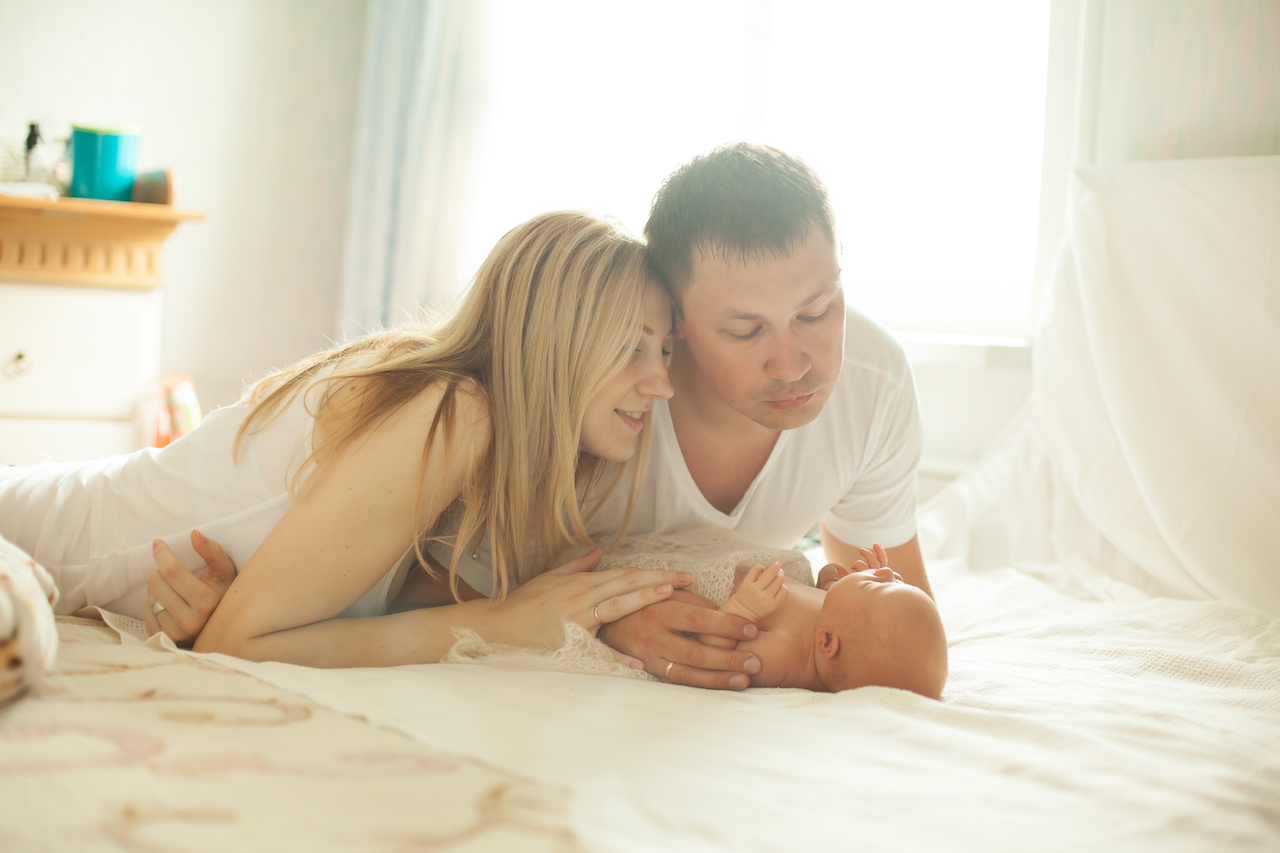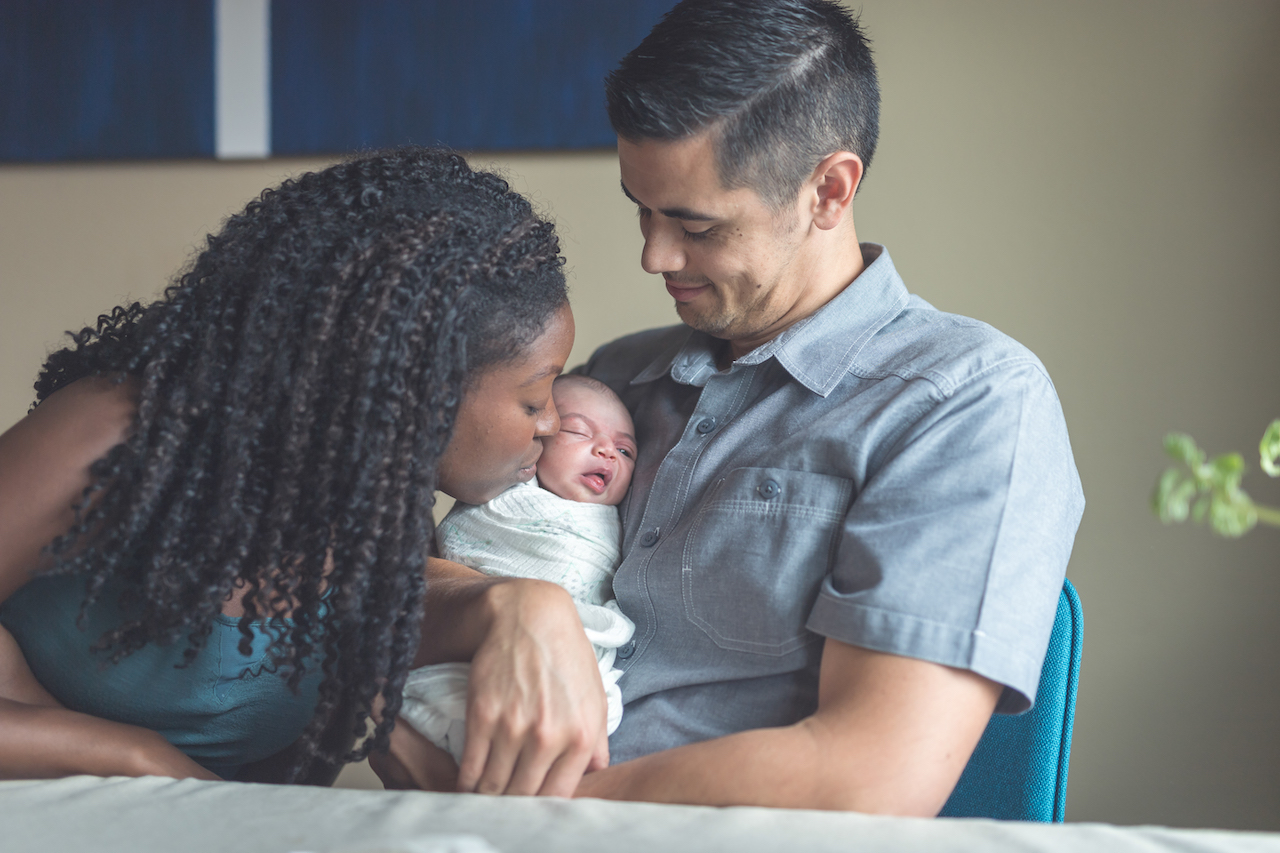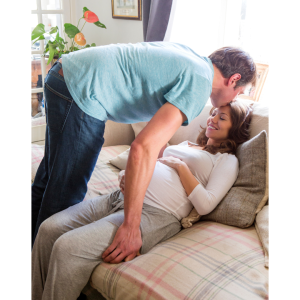
About DadPad, Attachment and Bonding, Being a Dad
About DadPad: Why dads matter
Posted on 16th June 2024
Today, for Fathers’ Day, we thought we would pull together a blog post looking at some of the many reasons why dads matter, right from the very start of their child’s life, both as a parent to that child and as a supportive and equal co-parent to their partner.
Attachment and bonding
Perhaps most important of all is the fact that, as a dad, you have a unique role to play in your child’s upbringing. Forming a secure attachment or bond with its primary caregivers is an essential element for any baby, for a whole host of reasons, including in particular that:
A child or person that has benefitted from a secure attachment will be more ‘protected’ from the challenges which will come with life. Although no guarantee of lifelong good mental health, the securely attached child will have the ‘toolkit’ in place to be more resilient, confident and adaptable when coming up against difficult situations; they are also more likely to have good self-esteem, self-control, and the ability to empathise with others. Importantly, because of all of this, they will be better able to thrive and take full advantage of all opportunities – especially in terms of education – that they receive in life. What an amazing gift to be able to give to your child!
We also know that dads will bond in a different way with their children than mums. The attachment role of mum is primarily to nurture, and dad has the same role, but with an added extra: to challenge. Dr Anna Machin, an evolutionary anthropologist, has explained that “his role is to teach the skills – behavioural, linguistic, cognitive – that will enable that child to deal with life’s challenges, assess its risks, and leap over those hurdles; to deal with failure, but also success.”
Research by Khan [2017] has also shown that establishing “a secure attachment with a caregiver is a fundamental building block for good mental health” for a child and “warm attachment relationships and play between children and their fathers can have a huge impact on self-esteem, social competence and (ability to manage) adversity.”
Further, summarising research studies, Fellows (2019, pp16-17) reported that:
- …father/father figure involvement has a positive impact on child outcomes – socially, behaviourally and psychologically (Sarkadi et al, 2008);
- …children with involved fathers have shown improved outcomes in education, behaviour, health and emotional and social functioning (Opondo et al, 2017); but
- disengaged interactions between fathers and their children have been associated with an increase in child behavioural problems (Ramchandani et al, 2013).
Sarkadi et al (2007, p155) also noted that research had established that “boys with a highly engaged father had less behavioural problems during the early school years than boys with less engaged fathers during the preschool years… high father engagement in poor families (with stable marriages) predicted lower incidence of delinquency during the early adult years for both sexes… [and, in relation to babies born prematurely within a specific demographic] a highly engaged father predicted significantly higher IQ scores at 3 years of age… compared to those… whose fathers have not been playing with or caring for their children daily.”

Parenting together… every step of the way
Being a new parent is hard, whatever your gender and whatever your situation. There are new skills to learn, new experiences to deal with, new relationships to negotiate, and new pressures to experience. But it’s also where traditional expectations of role may slip in.
Fellows (2019) reported findings that a “well prepared partner and father has a positive impact on the mother, which can help promote a positive birth experience.”
Research from the Fatherhood Institute (2018) confirms that pregnant mums do want their partner as an active participant throughout the antenatal period, and respond positively when he is present at the birth.
Dad has also been shown to play a vital role in supporting mum post-birth, including in relation to her recovery, the success of breastfeeding and identifying whether her mental health is suffering. Brown and Davies (2014) and Baldwin et al (2018) have also demonstrated that dads definitely do want to get involved and want to be given the information, support and help needed in order to do this.
It’s worth noting that, not only will having an informed, confident and ‘ready to go’ dad help a new mum enormously as both struggle to get to grips with their new baby and the massive lifestyle change that comes with it, but there’s also evidence that the benefits extend beyond the home, too: Frith, 2016, reported on a survey which “found that where men play an equal or main caregiver role in childcare 47% of female partners had progressed their careers since having children [but]… where men played very little or a moderate role in childcare only 26% of female partners progressed their careers after childbirth.”

Mental Health
The final key point we want to flag up in this piece is the important role that dad has in relation to the positive mental health of his whole family.
Perinatal mental ill-health in mum
As a new dad, another of your key roles is to be the ‘eyes and ears’ on a day-to-day basis, alert for any changes in baby’s mum’s behaviour which might suggest that she is in need of further support. You can find out more about the signs and symptoms to look out for in your partner in some of our other blog posts (including this one, this one and this one) but the crucial thing – as a dad/co-parent – is to not only spot the signs but to also ensure that mum (or you) speaks to the Midwife, Health Visitor and/or GP supporting your family as soon as you can, in order to get help. It’s also important to remember that it can be difficult to tell people when you’re feeling anxious or upset, and that mum may well need your support to access help and explain to others how she is feeling.
Being able to support mum in this way is not only going to have a positive impact on mum, but also on your baby, any other children, and your whole family.
Perinatal mental ill-health in dad
Having a new baby is hard – it’s going to change and put pressure on your relationship; it’s going to exhaust you both, mentally and physically; it’s going to change your whole life; and it’s going to alter the hormones that whizz around your body. In short, if it didn’t have a bit of an impact on your mental health, you’d be surprised.
We know – from research findings – just how many new dads can be impacted by perinatal mental health concerns and how serious these impacts can be; it’s reckoned that about 10% of all new dads experience postnatal depression, compared with an estimated 5% of men in the wider population who will experience depression during a year.
Not only is this clearly bad news for the dad himself, but also his partner and their child. Again, there is a plethora of research evidence out there, but – to quote from one example – “children of fathers who have depression during the postnatal period are at increased risk of behavioural problems at age 3-5 years… [and] the association between paternal depression and child behaviour problems is stronger in boys than in girls.” (Ramchandani et al, 2005).
As well as helping to get mum the help that she might need if she experiences any mental health difficulties, dad maintaining his own good mental health during the perinatal period has other positive impacts on the baby. For example, Khan [2017] has noted that fathers will often make “compensatory adjustments to mitigate any impact on maternal mental illness on child mental health and development… (and so dad’s good mental health therefore acts as a] protective factor for children’s mental health.” However, if dad’s own mental health is also suffering, he will be less able to do this.
Research studies have also found that, when both parents are depressed, they are unlikely to be following good-health guidelines in relation to their babies – e.g. putting them on their backs for sleep, breastfeeding, not putting them into bed with a bottle, etc [Paulson et al, 2006].
That’s why it’s also so very important for you, as a dad, to know: (a) that perinatal mental ill-health in dads is just as common as it is in mums (and you can read more about that here); (b) the signs and symptoms that they may be experiencing which could indicate that their mental health is taking a down-turn (again, find out more here); and (c) it is crucial that you also seek help at the earliest opportunity (and there’s guidance on how and where to find that here).
The positive mental health of your family
Finally, it’s also been found by Khan [2017] that dad’s – indeed, either parent’s – attitude towards mental health and mental illness will very much influence their children’s attitude towards seeking help in the future; if a parent experiences a high level of stigma and avoids reaching out for assistance, their children are also more likely to be affected by stigma, and adopt avoidant strategies of their own, preventing essential early help. Therefore, the way in which dad deals with any mental health difficulties in the family – be they his own and/or his partner’s – is vitally important; ignoring it, belittling it or stigmatising it will undoubtedly have negative consequences for a range of people.

So, dads really do matter, in oh-so-many ways!
🫶🏾 Happy Father’s Day to all you VIPs out there – you’re doing an amazing job 🫶🏾

References and further reading:
DadPad Blogs:
- About DadPad: DadPad as a feminist concept
- About DadPad: Why dads’ mental health matters
- Ask DadPad: Can dads get post-natal depression?
- Ask DadPad: How can I best support my own and my partner’s perinatal mental health?
- Ask DadPad: How do I bond with my baby?
- Ask DadPad: What do I need to know about perinatal maternal mental health?
- Ask DadPad: Where do I go to access support for my mental health?
External research, links and articles:
Baldwin, Sharin; Malone, Mary; Sandall, Jane; and Bick, Debra (2018). Mental health and wellbeing during the transition to fatherhood: a systematic review of first time fathers’ experiences [online]. JBI Database of Systematic Reviews and Implementation Reports.
Brown, Amy; and Davies, Ruth (2014). Fathers’ experiences of supporting breastfeeding: challenges for breastfeeding promotion and education [online]. Maternal and Child Nutrition.
Burgess, Adrienne and Goldman, Rebecca (2018). Who’s the bloke in the room? Fathers during pregnancy and birth in the UK (Executive Summary) [online]. Fatherhood Institute.
Fellows, Rebecca (2019). Connecting with dads: The importance of fathers in the lives of their babies [online]. Clinical Psychology Forum 316.
Frith, Bek (2016). Women progress when childcare duties are shared more equally [online]. HR Magazine.
Khan, Lorraine (2017). Briefing 50: Fatherhood – The impact of fathers on children’s mental health [online]. Centre for Mental Health.
Machin, Anna (2019) We need to change the conversation about fathers | Anna Machin | TEDxClapham. [online]. YouTube.
Paulson, James F; Daubner, Sarah; and Leiferman, Jenn A (2006). Individual and Combined Effects of Postpartum Depression in Mothers and Fathers on Parenting Behavior. [online]. Pediatrics.
Ramchandani, Paul; Stein, Alan; Evans, Jonathan; O’Connor, Thomas G; and the ALSPAC stdy team (2005). Paternal depression in the postnatal period and child development: a prospective population study [online]. The Lancet.
Sarkadi, Anna; Kristiansson, Robert; Oberklaid, Frank; and Bremberg, Sven (2007). Fathers’ involvement and children’s developmental outcomes: a systematic review of longitudinal studies [online]. Acta Paediatrica.

